|
Kick-Off Meeting to Bring Together Experts in Rice Management and Equipment Operation and Maintenance from Indonesia and Senegal

Following a series of discussions between the Non-Aligned Movement Centre for South-South Technical Cooperation (NAM CSSTC), the Embassy of the Republic of Indonesia in Dakar, the Ministry of Agriculture of the Republic of Indonesia (MoA), and CV. Karya Hidup Sentosa (KHS), it was agreed to hold a kick-off meeting before a face-to-face training to gather input from Senegal as potential beneficiaries. A virtual kick-off meeting was held on Friday, March 18, 2022.
In his remarks at the start of the kick-off activity, Acting Director of NAM CSSTC Diar Nurbintoro expressed his appreciation for the long-term agricultural cooperation between Indonesia and Senegal, and emphasised how the kick-off meeting can be an initial platform to bring together experts in rice management and equipment operation and maintenance from Indonesia and Senegal. Diar also stated that NAM CSSTC is committed to assisting the process of agricultural mechanisation in West Africa through technical cooperation activities such as training, which will take place following the kick-off meeting.
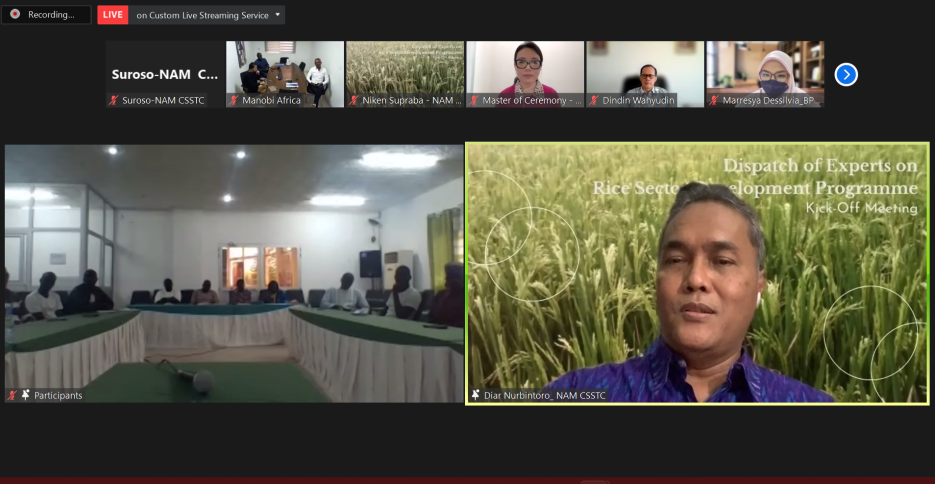
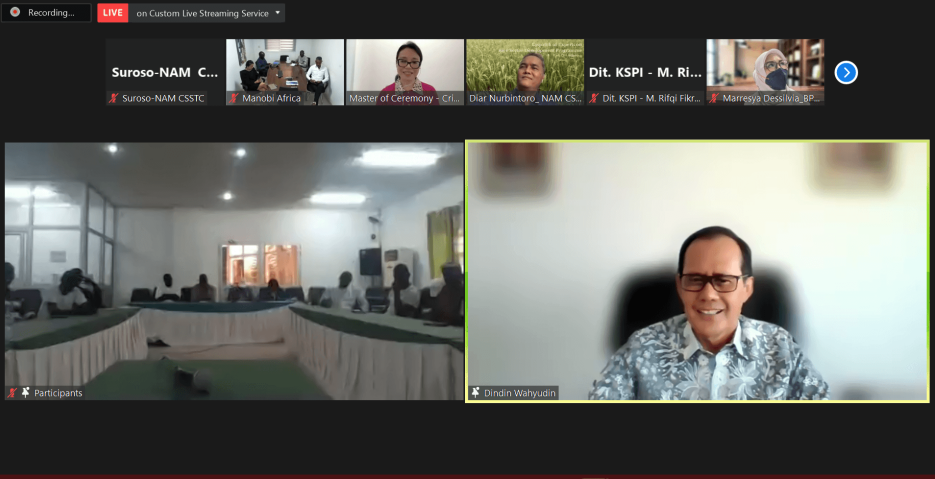
Following the opening, a main session was held, led by Ronny Mucharam of the MoA's Foreign Cooperation Bureau. Dr. Fiadini Putri from the Lembang Indonesian Centre for Agricultural Training was also present as an expert in rice management, as was Ramadhan Putra from CV. KHS as an expert in equipment operation and maintenance.
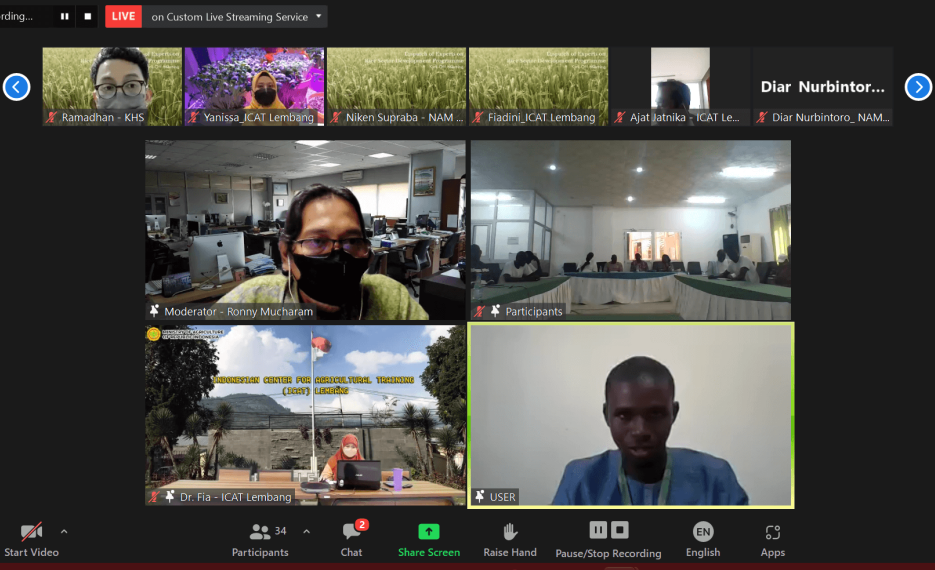
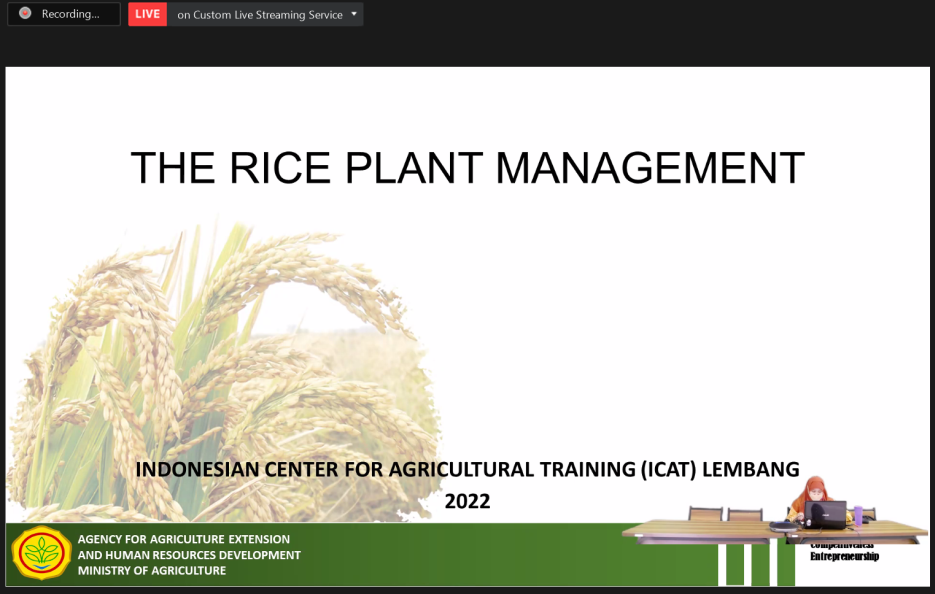
At the end of the kick-off meeting, it was determined, among other things, that farmers in Senegal would be more productive with agricultural mechanisation because harvest time would be more efficient. The use of superior rice varieties will also increase rice farming productivity to 10-12 tonnes per hectare.
In his presentation, Ramadhan stated that the use of a combine harvester will make the use of Human Resources (HR) more efficient because it only requires two people to operate and reduces planted rice loss to less than 2%.
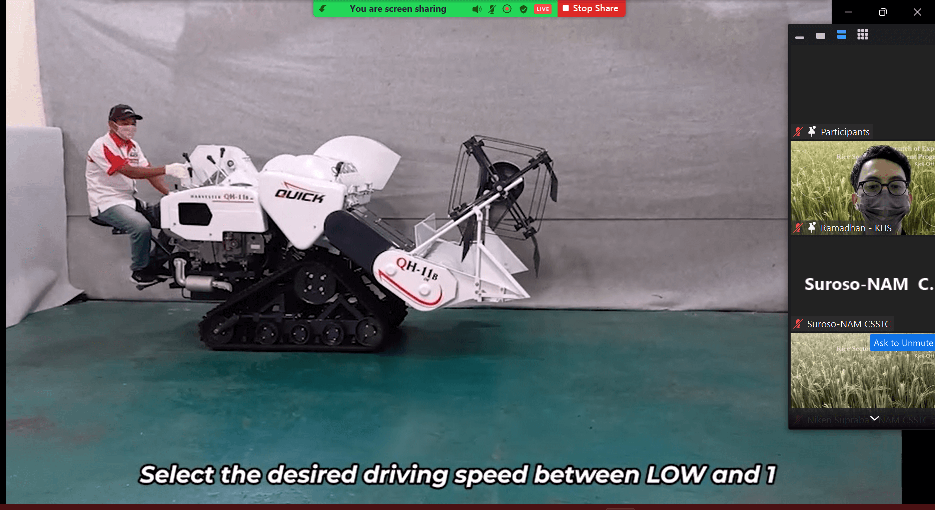
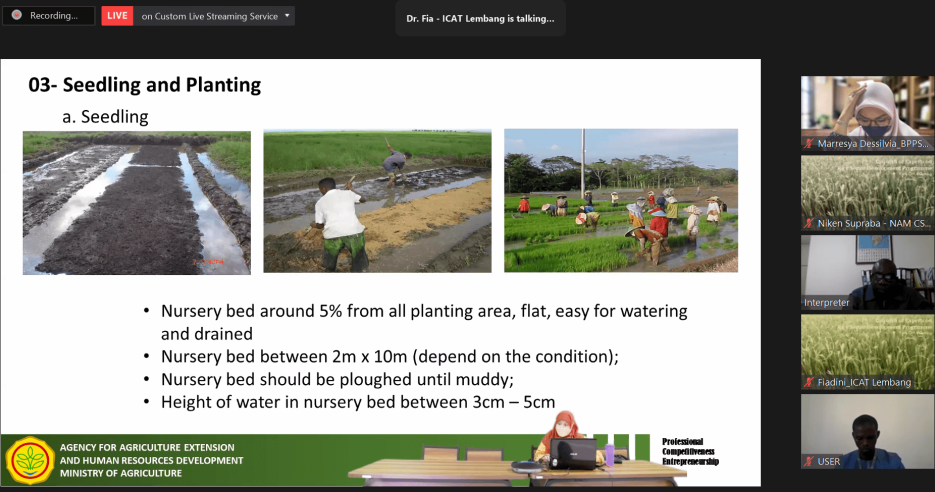
In terms of Dr. Fia emphasised several key points for successful rice management in her presentation, including paying special attention to soil quality with compost fertiliser, using high quality rice seeds, rice planting spacing, and paying attention to the colour of rice leaves to determine the level of fertiliser required.
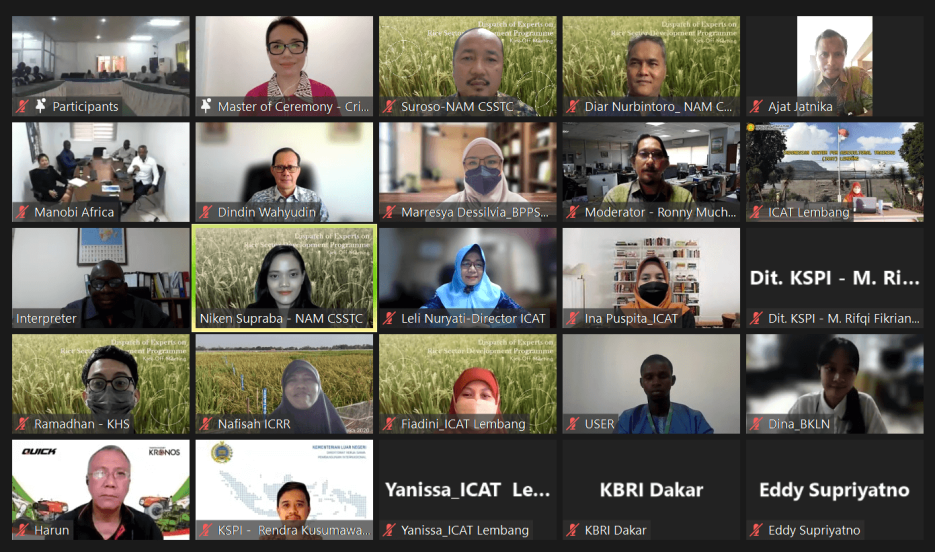
|

